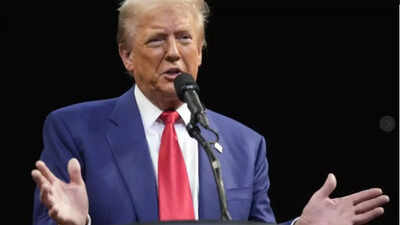On January 6, Ana Belen Montes, a former US Defense Intelligence Agency (DIA) officer convicted of spying for Cuba, walked out of prison. Montes, called ‘Queen of Cuba’, served more than 20 years behind bars in Fort Worth, Texas, after her arrest in 2001. While she had been sentenced to 25 years in jail, she was released early on account of good conduct.
She will be under supervision for five years and her internet usage will be monitored.
Who is Ana Montes, and how did she manage to spy for Cuba while working in the US military’s spy wing? After 17 years, how was she finally arrested? Why did she choose to betray her country? We explain.
Who is Ana Montes?
According to a 2012 statement by Michelle Van Cleave, head of US counterintelligence under President George W Bush, Montes is “one of the most damaging spies the United States has ever found”.
“She compromised everything — virtually everything — that we knew about Cuba and how we operated in Cuba and against Cuba,” Van Cleave was quoted as saying by CBS News. “In addition, she was able to influence estimates about Cuba in her conversations with colleagues and she also found an opportunity to provide information that she acquired to other powers.”
Montes was recruited by Cuba when she was pursuing a master’s degree at Johns Hopkins University in 1984, while also holding a clerical job at the Department of Justice, in Washington. Montes disapproved of the policies of the Ronald Reagan government abroad, especially in Nicaragua. She was very vocal about her views, which is how the Cuban authorities zeroed in upon her, first approaching her through a fellow student.
After finishing her studies, she applied for a job at DIA. According to the FBI, “by the time she started work there in 1985, she was a fully recruited spy”. She was also very good at her work.
The FBI says about her, “Montes was actually the DIA’s top Cuban analyst and was known throughout the US intelligence community for her expertise. Little did anyone know how much of an expert she had become and how much she was leaking classified US military information and deliberately distorting the government’s views on Cuba.”
Apart from passing on critical information, Montes also revealed the identities of four American intelligence officers working undercover in Cuba.
How did Montes go undetected for so long?
According to the FBI, Montes never stole any documents or devices from office. Instead, she memorised important information, came home, and typed them out on her laptop. This she transferred to encrypted disks, which she would hand over to her handlers. According to news reports and the FBI, Montes used paper especially soluble in water and codes received over short-wave radio to communicate with the Cubans.
How was she finally arrested?
Montes’s outspoken views on US foreign policy had made some colleagues suspicious, but not enough to nail her. Finally, the FBI got wise to the fact that someone in the DIA was a mole.
The FBI says, “Through physical and electronic surveillance and covert searches, the FBI was able to build a case against Montes. Agents also wanted to identify her Cuban handler and were waiting for a face-to-face meeting between the two of them, which is why they held off arresting her for some time. However, outside events overtook the investigation—as a result of the 9/11 attacks, Montes was about to be assigned work related to US war plans. The Bureau and DIA didn’t want that to happen, so she was arrested.”
Why did Montes turn to spying?
According to the FBI, Montes’s motivation was “pure ideology—she disagreed with US foreign policy. Montes accepted no money for passing classified information, except for reimbursements for some expenses.”
A 2013 article on her by The Washington Post said that Montes grew up with a domineering father who beat up his children, turning her into a person who hated overweening authority figures and championed underdogs. According to this article, “Montes’s childhood made her intolerant of power differentials, led her to identify with the less powerful, and solidified her desire to retaliate against authoritarian figures,” the CIA wrote in a psychological profile of Montes.”
Several members of Ana Montes’s family have worked for the US government – her father was a military doctor, and her brother Tito and sister Lucy worked in the FBI. Her family has condemned Ana’s actions.









![Best Weight Loss Supplements [2022-23] New Reports!](https://technologytangle.com/wp-content/uploads/2022/12/p1-1170962-1670840878.png)




